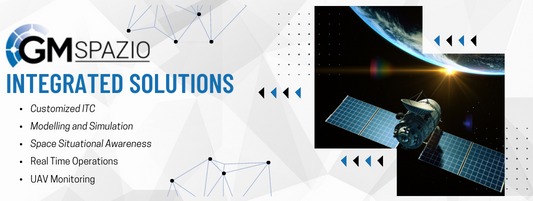
Unlocking Earth's Secrets: The Satellite Revolution and Our Global Economy
In the boundless expanse of aerospace technology, there exists a realm where science fiction meets the practicality of our modern world. This is the world of Earth observation satellites, and it's changing the way we perceive our planet while making a significant impact on our global economy. In this article, we'll take you on a journey through the fascinating domain of Earth observation satellites, shedding light on their pivotal role in expanding our understanding of Earth and the remarkable economic implications they bring with them.
The Lens from Above
Earth observation, in simple terms, is the art of gazing down at our planet from above, but it's far from a passive endeavor. It involves the systematic collection of data about Earth's surface, oceans, and atmosphere using sensors aboard satellites orbiting our planet. The applications of this data are as diverse as they are vital, ranging from predicting the weather to monitoring our environment, managing natural resources, urban planning, ensuring food security, and much more.
The Marvels of Earth Observation Satellites
Picture these satellites as high-tech marvels, crafted with precision to capture a diverse tapestry of data about our world. They come equipped with an array of capabilities:
1. Multispectral Sensors: Many of these satellites sport multispectral sensors that act like an artist's palette, capturing images in various parts of the electromagnetic spectrum. This allows us to spot intricate details about vegetation, land usage, pollution levels, and other critical environmental factors.
2. Scanning Radar: Some of these satellites employ scanning radar to create high-resolution images, regardless of weather conditions or whether it's day or night. This radar technology is indispensable for keeping an eye on natural disasters and the riches of our oceans.
3. Satellite Constellations: Space agencies have embarked on developing constellations of Earth observation satellites. These constellations bring increased data collection frequency, ensuring continuous coverage and minimizing data delays.
4. Data Alchemy: It's not just about collecting data; it's about turning it into gold. Advanced technologies like artificial intelligence and machine learning are often harnessed to extract meaningful insights from the troves of data gathered. This, in turn, empowers precise weather predictions, efficient pollution monitoring, and informed natural resource management.
Applications, Advantages, and the Economic Ripple Effect
Earth observation satellites offer a cornucopia of applications, advantages, and a considerable economic impact:
1. Precision Weather Forecasting: Think about the importance of getting weather forecasts right. These satellites provide the crucial data needed for accurate predictions, which, in turn, impacts agriculture, transportation, and disaster preparedness, all with substantial economic ramifications.
2. Environmental Stewardship: These satellites help us monitor natural resources, track forest health, assess coastal erosion, manage water resources, and detect climate change. Effective environmental management translates to cost savings, sustainable resource utilization, and the nurturing of eco-friendly industries.
3. Food Security: By keeping a vigilant eye on the health of our crops and intervening when needed, these satellites play a vital role in ensuring food security. This, in turn, stabilizes food prices and supports the agricultural economy.
4. Disaster Management: The real-time imagery provided by these satellites is a game-changer in disaster management. It enables timely responses and more efficient rescue efforts, saving lives and reducing economic losses.
5. Urban Planning and Development: These satellites aren't confined to the countryside; they're city slickers too. They assist in urban planning, traffic management, land mapping, and infrastructure development. Efficient urban planning and robust infrastructure are the bedrock of economic growth in bustling cities.
6. Economic Growth and Innovation:The Earth observation industry itself is a thriving contributor to the global economy. From the development and manufacturing of satellite systems to fostering innovation in remote sensing technology, data analysis, and geospatial applications, it's a powerhouse that creates high-tech jobs and fuels economic growth.
In Conclusion: A Vision for Tomorrow
Earth observation satellites stand as a testament to human ingenuity, reshaping the way we understand our planet and address the challenges it poses. Simultaneously, their economic significance is a driving force behind innovation, supporting various industries, enhancing economic stability, and ultimately elevating the quality of life for nations and their citizens.
As technology continues to advance, our ability to monitor, safeguard, and thrive on planet Earth will only expand. It's a journey towards a more sustainable and prosperous future, one that we're excited to be part of, and one that promises benefits for generations to come. So, here's to unlocking Earth's secrets and the remarkable journey that lies ahead.





